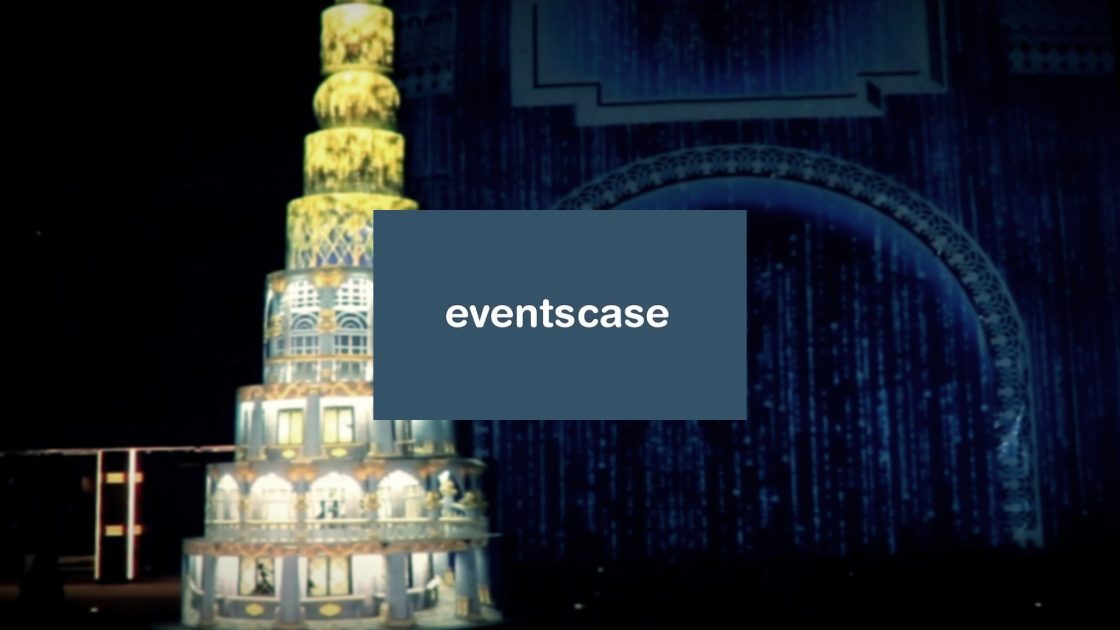The event industry moves fast, but the technology industry moves even faster. If one thing is true about the latter, it’s that it pays to keep up with the latest innovations to see how you can leverage them for a big impact.
Technology is no stranger to the event landscape. Whether it’s making someone’s job easier through project management tools, or an attendee’s experience that bit more fantastic, we find that venues, planners and suppliers always have a reason to keep technology by their side.
As we await delivery of the ‘next big thing’, our advice would be to keep an eye on some of the upcoming solutions in order to understand how they can make your events even better. With that in mind, let’s walk you through the top four event technology trends for 2020.
The top event technology trends for 2020
The last few years have shown major breakthroughs on the technology front, but 2020 could see an even better wave of innovation than the past few years combined.
The reasoning is that technology in general is becoming more accessible and easier to use. This provides an excellent opportunity for those without certain skills (e.g. in data collection, analytics, coding) but with ambitions to become more technologically driven. Our top picks for 2020 are as follows:
Projection mapping
Projection mapping is very similar to augmented reality and video mapping. What’s unique about this innovation is that it can turn any type of object into an interactive 3D show.
Event planners can use projection mapping to completely transform a venue into a thrilling and engaging light display. It’s versatile – being suitable for both decoration and entertainment – and really encourages its creator to think outside of the box.
Consider transporting your guests to a completely new setting, swapping your plain white venue with a beach, complete with sand, a bright blue sky, and crashing waves. It can also be used on a smaller scale, turning a white iced cake into a themed show, or something else entirely. With projection mapping, you can afford to let your imagination run wild.
Event data and new metrics
Data rules all in this day and age. We gather it, analyse it, and then apply it to better understand what was gathered in the first place. Data isn’t new, but using what we obtain from attendees in specific ways to personalise their experience is.
Planners should already be creating special attendee personas to better cater to their audience’s wants and needs. This is mainly to find a way of giving people a personalised experience – for example, by creating post-event networking opportunities based around their industry, interests, and professional goals.
Capturing data is easy, too. Planners now have the luxury of gaining crucial insight during their event registration, through surveys filled out via an official app, or even a post-event questionnaire.
We expect 2020 to be the year that event planners really get their data house in order, but there are no set rules for its use. It really comes down to how you capture your information and what you want to get out of it.
Gamification
Who doesn’t love a little competition from time to time? This definitely holds true in the world of events, where one of the best ways of driving audience engagement is through a fun game.
Known as the application of game mechanics to real-world situations, gamification has been evolving for years and there are now tonnes of new and exciting ways to bring it into your events.
Adopting gamification can be as simple as holding a virtual scavenger hunt throughout your venue, encouraging attendees to interact with every little detail. Conversely, we could be talking about something much more complex, involving the use of augmented reality or similar on your event app. The possibilities are endless, and we expect a whole host of new uses in 2020.
5G
Lastly, we have 5G: the fifth iteration of mobile connectivity. What’s exciting about the onset of 5G is that we’ll be able to support a greater number of large devices – beyond mobile phones – as a result of the faster speeds.
This means so many things for events. For one, say goodbye to dead zones in large crowds, as 5G speeds are significantly faster than anything that ever came before them.
5G also means more reliability. Think about all the devices used at events that rely on a strong wi-fi signal. 5G will be faster and more stable than wi-fi, which means we don’t have to worry about devices swallowing bandwidth or hurting the speed of another device. Our prediction is that event management will be much simpler once every device is connected to a single, reliable network.
5G has not entered the mainstream just yet. It’s currently being tested by larger carriers in select markets and cities, with experts believing we’re around three to five years away from covering the majority of the population. Until then, event planners should be thinking about what they could do if wi-fi or connectivity weren’t an issue – because soon, they won’t be.
Keep your finger on the pulse
As you can see, there are so many new and exciting innovations that can make your events better and easier to plan.
The opportunity to show off and come up with something inspiring is endless. So, if you really want to make an impression on your audience, why not make 2020 the year for doing something different?

